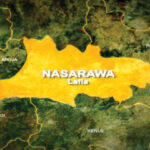Following the ‘security breaches’ in the vicinity of the Federal Government College, Kwali, last Tuesday, the government moved to protect secondary schools in the Federal Capital Territory (FCT) from attacks by ordering them to close down in the meantime. The situation was exacerbated by a similar threat by bandits to attack the Nigerian Law School in Bwari, also in the FCT. It culminated in the ambush and killing of two officers and eight soldiers of the 7 Guards Battalion and 167 Special Force Battalion in Abuja last week. By any measure, these are too many threats to the security of the seat of government in a single week. And all these coming soon after the massive breach at Kuje Custodial facility only a few weeks ago.
The three sad occurrences combined to expose the reality that, not only rural states, but also Abuja, the seat of federal power, is no longer safe. The emergency step taken by the Federal Ministry of Education was to halt the ongoing third term examinations and to close all unity schools in the FCT. The Education Minister, Malam Adamu Adamu, was quoted as saying, “the closure became necessary following a security breach on Sheda and Lambata villages, suburbs of Kwali Area Council, which also threatened FGC Kwali…The timely intervention of security agencies saved the situation.” Privately-owned primary, secondary and tertiary schools in the FCT followed in the footsteps of government-owned schools and prematurely suspended all academic activities.
- COVID-19 vaccination key to protecting yourself, others
- 2 men nabbed for using cancer patient to beg, build house in Abuja
Since 2014 when Boko Haram abducted 276 schoolgirls from Government Girls Secondary School, Chibok in Borno State, more than a dozen other schools have come under violent attacks by terrorists, bandits, and sundry criminals in Kaduna, Kebbi, Katsina, Niger, Yobe, Zamfara and Kaduna states, leading to the killing of many students, and the abduction of hundreds more. In response to incessant attacks on schools, state governments have closed many secondary schools in the states, disrupting the flow of education and learning for thousands of students. Unfortunately, but unexpectedly, the FCT has now joined the league of states compelled to halt education as the only measure left for protecting students and staff in our schools. The preventive measure is necessary, but it will have negative cognitive and psychological effects on schoolchildren who will live with the trauma of being hounded out of their schools for fear of their lives and limbs.
It is disappointing that government and security agencies have not done enough to tame the ‘security breaches’ in the FCT until July 2022, when the threats have long been in the making. Since 2019, there have been reports that bandits had set up camps in forests in many area councils, kidnapping residents, extorting them of huge sums of money in ransom, and torturing those who could not pay. Many hapless victims have also been killed. These attacks had occurred numerous times across towns and suburbs of the Federal Capital Territory, including Kuje, Gwagwalada, Bwari, Kwali, Dutse Alhaji, among others, with loud outcries and appeals for help from community leaders, but security agencies did not seem to have done much to flush the criminals out of FCT forests. If they were responsive, it should not have taken government and security agencies four years to realise that Abuja had been encircled by all sorts of criminals who, in a manner of speaking, seem to be pointing the middle finger at the federal government in its own enclave. The attacks and killing of two officers and eight soldiers of the 7 Guards Battalion and 167 Special Forces Battalion in Abuja last week is particularly of note here.
All of the foregoing raises the question of what has happened to the Safe Schools Project, led by the federal government itself and supported by the World Bank and other donor agencies since 2014? At the core of this initiative was the recognition of education as a right of the child. The multi-billion naira grant was meant to help rebuild school infrastructure, encourage community-led security approaches, and provide protective and early warning measures, including perimeter fences and CCTVs for many vulnerable schools. The project recorded significant success in the North East, where it was first launched following a series of attacks on schools. But now that the same security challenges have escalated beyond the North East, we urge the federal the Safe Schools Initiative to secure schools across more states of the country.
While the extension of the Safe Schools Initiative to more states is obviously a long-term process, the federal government must work out short and medium-term ways and means to ensure that closed schools in the FCT, and elsewhere across the country, are able to resume and continue academic activities in secure environments by the start of the next session in September. One ready approach would be for the government and the security agencies to pay back all criminals surrounding the FCT, and across several states, in their own coin. This will go a long way in assuring parents, teachers and students of the safety of schools. But more importantly, it will remind all the criminals that the federal government remains in charge, not only in the FCT but across the whole country.

 Join Daily Trust WhatsApp Community For Quick Access To News and Happenings Around You.
Join Daily Trust WhatsApp Community For Quick Access To News and Happenings Around You.


